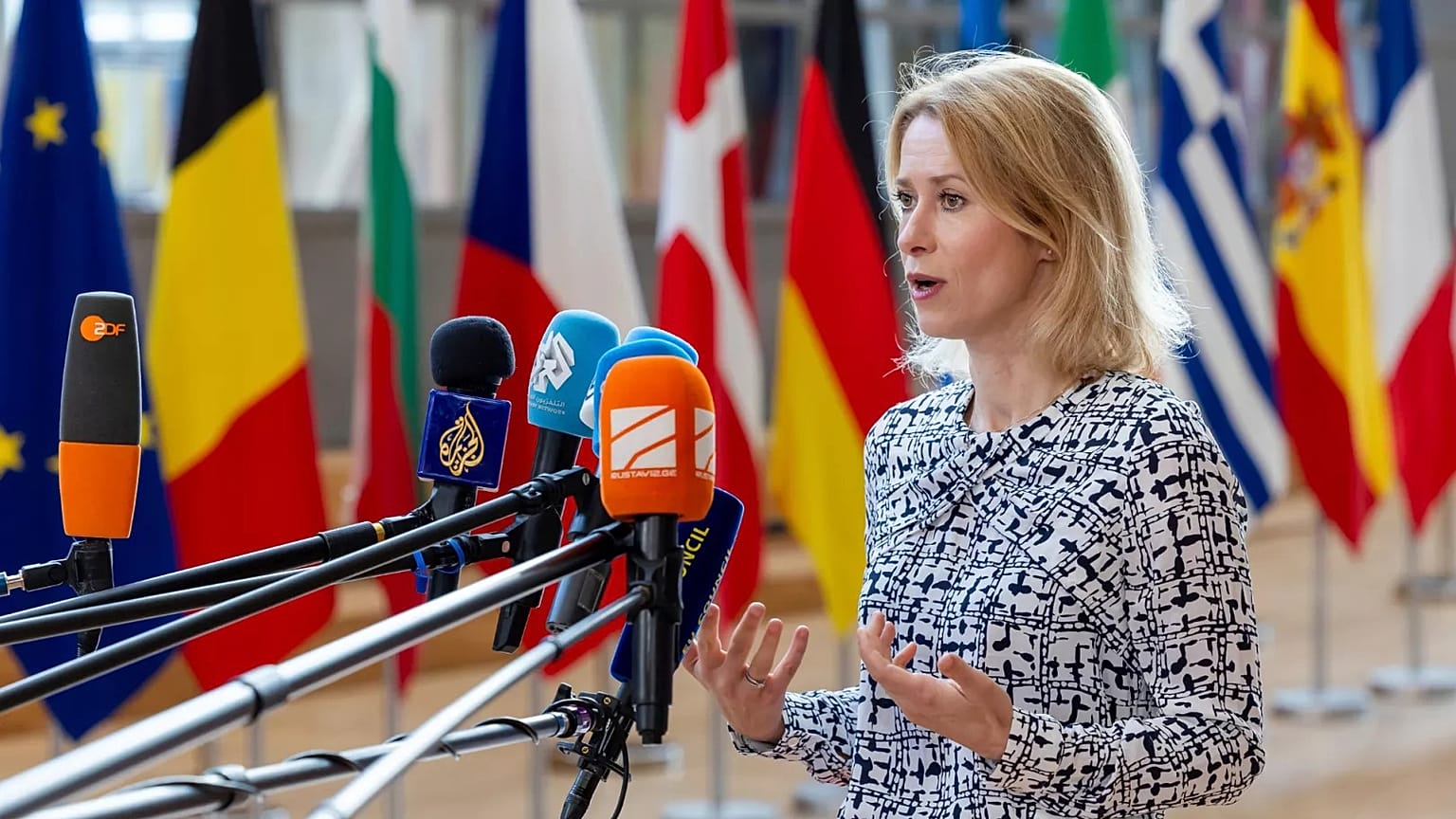Politics
Kallas Warns Against Land Concessions to Russia in Ukraine Conflict

The European Union’s foreign policy chief, Kaja Kallas, has issued a stark warning against proposals suggesting that Ukraine should concede territory to Russia. In a recent interview with the BBC, Kallas criticized these calls as a dangerous “trap” set by Vladimir Putin, asserting that the Russian leader shows no genuine interest in pursuing peace.
Kallas firmly rejected the notion that Kyiv should compromise on land as part of any peace deal to end the ongoing conflict, which has persisted for over three years. She emphasized that Russia has not made “one single concession,” stating, “The discussion is all about what Ukraine should give up, whereas we are forgetting that Russia has not made one single concession.” Her remarks underline the perception that the Kremlin is the aggressor, inflicting violence and suffering on the Ukrainian population.
In her comments, Kallas cautioned that conceding territory would only embolden further Russian aggression. “This is exactly the trap that Russia wants us to walk into,” she said, highlighting the importance of recognizing Moscow’s approach to the negotiations.
Kallas’s remarks follow a meeting between US President Donald Trump and Putin in Alaska earlier this month. Trump later hosted Ukrainian President Volodymyr Zelenskyy at the White House, alongside several European leaders, including Ursula von der Leyen, President of the European Commission. While Trump has called for an end to the fighting, Kallas expressed skepticism about Russia’s willingness to engage in meaningful dialogue. “Russia is just dragging feet. It’s clear that Russia does not want peace,” she stated.
She further criticized Trump’s approach, stating that while he has publicly advocated for a cessation of hostilities, Putin’s actions suggest otherwise. “President Trump has been repeatedly saying that the killing has to stop and Putin is just laughing, not stopping the killing, but increasing the killing and increasing the bombings on Ukraine. You can’t possibly negotiate under bombs,” she added.
For a credible peace process to emerge, Kallas argued that it must begin with a truce and include long-term security guarantees for Ukraine. “It is not just a truce or ceasefire; it has to be a long-term solution,” she noted. She emphasized that these guarantees are essential to prevent future aggression from Putin, underscoring the need for the United States to play a role in any potential agreements.
On March 4, 2024, Trump stated, “Europe is the first line of defence,” reiterating the United States’ commitment to assist in the situation. He did not dismiss the possibility of US peacekeepers being deployed on the ground in Ukraine.
Kallas also advocated for stronger measures against Moscow, pointing to the effectiveness of Western sanctions. “The Americans have the leverage with sanctions and tariffs to pressure Russia to negotiations,” she said, adding that the EU is preparing its 19th package of restrictive measures against Russia.
Reflecting on the recent Alaska meeting, Kallas expressed regret that Putin managed to achieve several political wins. “Putin got what he wanted. He wanted the picture, but he got so much more. He got a welcoming in America and then he also wanted the sanctions not to be put in place, which he also achieved,” she concluded.
-

 Top Stories3 months ago
Top Stories3 months agoTributes Surge for 9-Year-Old Leon Briody After Cancer Battle
-

 Entertainment4 months ago
Entertainment4 months agoAimee Osbourne Joins Family for Emotional Tribute to Ozzy
-

 Politics4 months ago
Politics4 months agoDanny Healy-Rae Considers Complaint After Altercation with Garda
-

 Top Stories4 months ago
Top Stories4 months agoIreland Enjoys Summer Heat as Hurricane Erin Approaches Atlantic
-

 World5 months ago
World5 months agoHawaii Commemorates 80 Years Since Hiroshima Bombing with Ceremony
-

 Top Stories3 months ago
Top Stories3 months agoNewcastle West Woman Patricia Foley Found Safe After Urgent Search
-

 Top Stories5 months ago
Top Stories5 months agoFianna Fáil TDs Urgently Consider Maire Geoghegan-Quinn for Presidency
-

 World5 months ago
World5 months agoCouple Convicted of Murdering Two-Year-Old Grandson in Wales
-

 World5 months ago
World5 months agoGaza Aid Distribution Tragedy: 20 Killed Amid Ongoing Violence
-

 World5 months ago
World5 months agoAristocrat Constance Marten and Partner Convicted of Infant Murder
-

 Top Stories4 months ago
Top Stories4 months agoClimbing Errigal: A Must-Do Summer Adventure in Donegal
-

 Top Stories4 months ago
Top Stories4 months agoHike Donegal’s Errigal Mountain NOW for Unforgettable Summer Views









